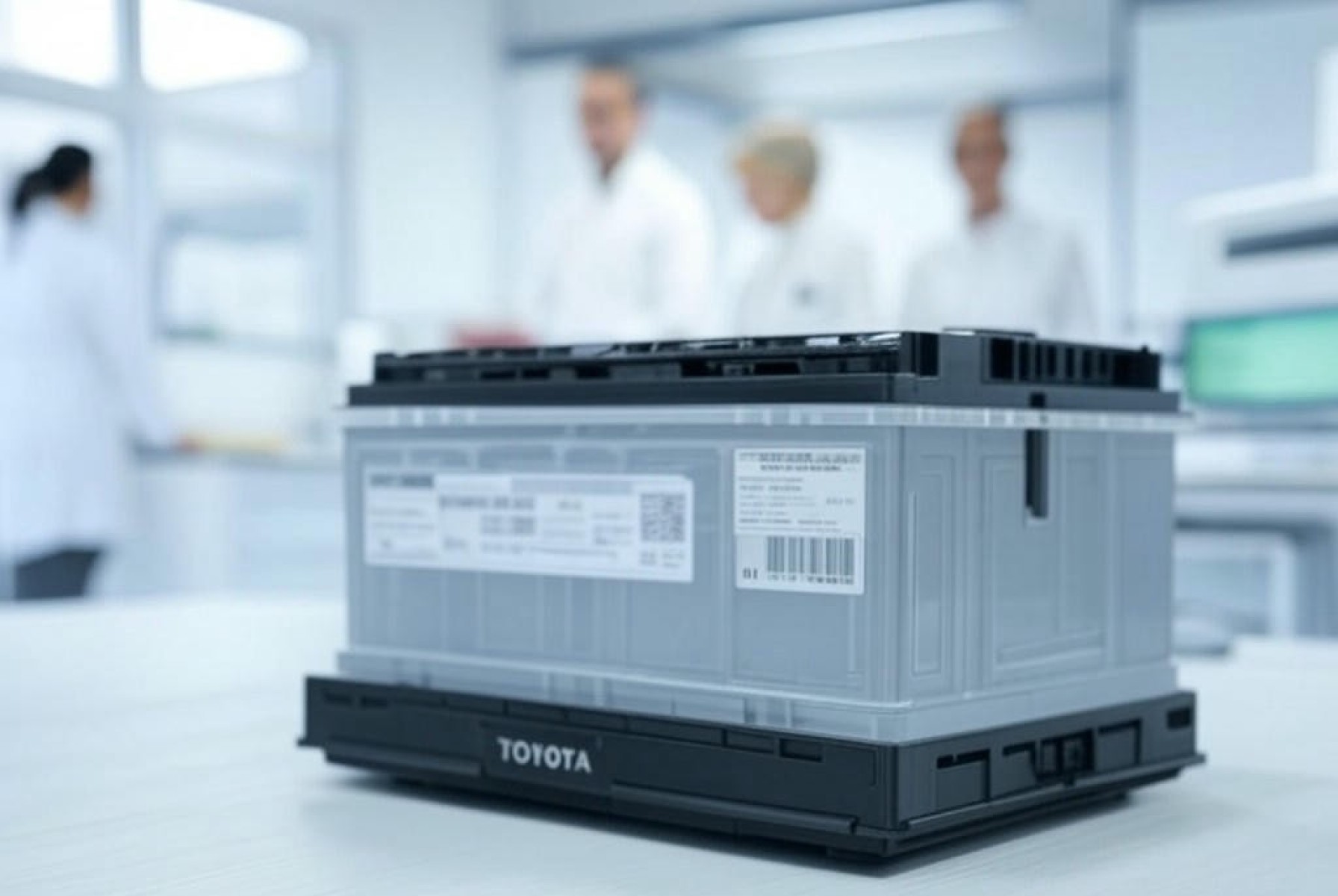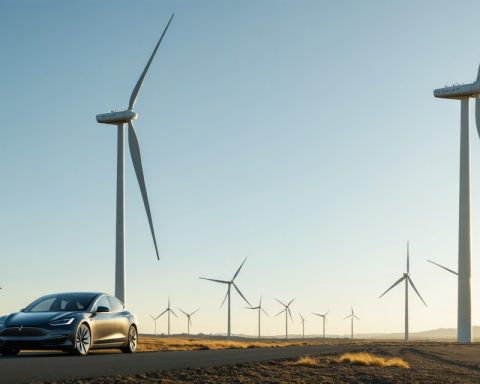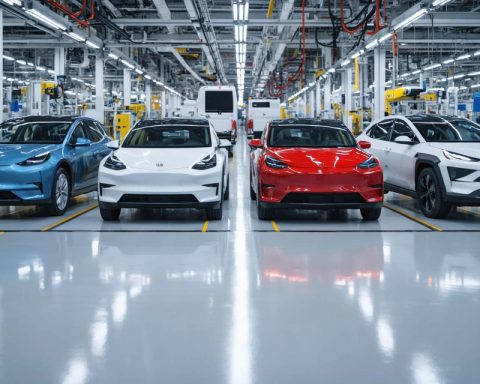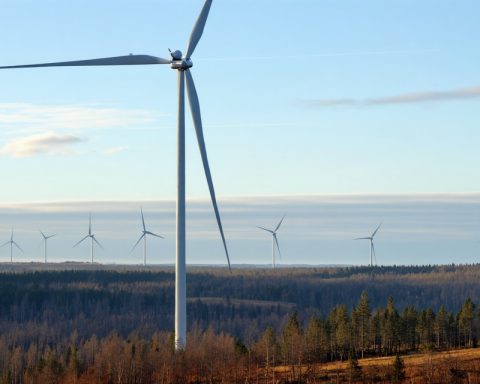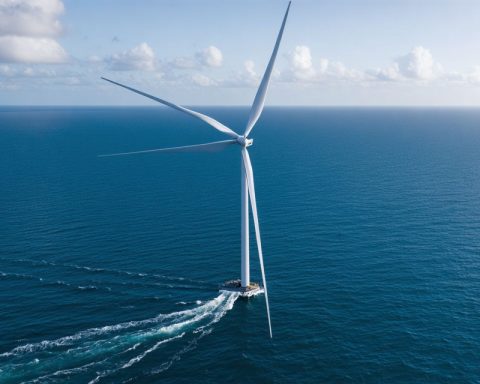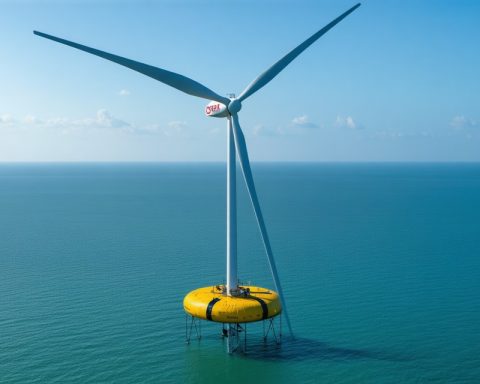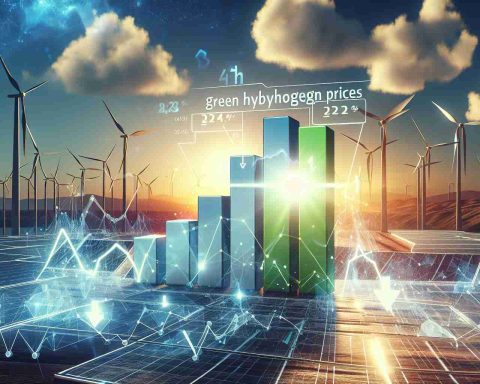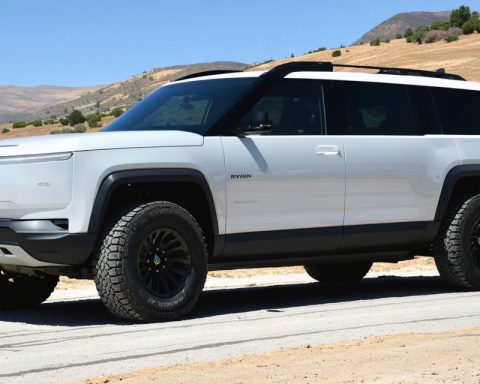- Toyota faces delays in developing its new electric vehicle (EV) batteries, originally set to promise ranges over 620 miles.
- The “Performance” battery, aiming for nearly 500 miles of range and 20-minute fast charging, is postponed due to construction delays.
- Challenges stem from tempered EV demand and high construction costs impacting their Fukuoka, Japan facility.
- Toyota’s $14 billion North Carolina plant will begin producing batteries primarily for hybrid vehicles rather than focusing solely on EVs.
- Global EV demand continues to rise, with competitors like BYD advancing through cost-effective, high-range solutions.
- Toyota’s journey reflects the broader industry challenge of balancing innovation with market realities.
- The outcome of these challenges will shape Toyota’s future in the ongoing electric revolution.
In a world racing towards electrification, Toyota, a name synonymous with innovation, finds itself slowing down amidst a rapidly evolving landscape. The automotive giant’s ambitious plans to unveil a new era of electric vehicle (EV) batteries—promising ranges of over 620 miles—face setbacks that shift their timeline beyond the horizon.
The Japanese marque had mapped out a visionary trajectory, set to catapult itself to the forefront of EV technology with state-of-the-art battery solutions. The “Performance” battery was slated to hit the roads next year, offering nearly 500 miles of range, with charging reduced to a mere 20 minutes for a significant power boost. Further down this road were even more ambitious goals: a “High Performance” Li-Ion battery promising over 620 miles, hinting at a cleaner, greener future.
Alas, the path doesn’t appear as smooth as anticipated. Despite securing a sprawling expanse of land in Fukuoka, Japan, the construction of a key battery production facility faces delays. This postponement, reportedly stemming from tempered EV demand and soaring construction expenses, nudges the original timeline further into the future. On the domestic front, Toyota’s colossal $14 billion North Carolina battery plant gears up to commence operations, albeit focused on supporting hybrid vehicle production stateside—adding another intriguing layer to Toyota’s global strategy.
An evolving picture, replete with challenges yet brimming with potential, emerges: Why the pause in momentum, when EV sales continue to surge globally, posting double-digit growth into 2025? With rivals like China’s BYD leading the charge through low-cost, high-range innovations, Toyota’s delays could widen the gap between itself and these agile competitors.
This paints a curious landscape where the roadblocks leading to innovation become as telling as the innovations themselves. Toyota’s dilemma is emblematic of the larger global race—a delicate balancing act between ambition and practicality, demand and supply, quality and quantity. It is a poignant reminder of the complexities intrinsic to revolutionizing an industry so heavily rooted in tradition.
As the world watches and waits, this becomes the pivotal moment that will define Toyota’s place in the electric revolution—whether as a determined leader making calculated strides or as a once-formidable titan adjusting its sails against the winds of change. Stay tuned; the journey is far from over, and each twist on this path to the future unfolds a new chapter in the electrifying tale of modern transport.
Toyota’s Quest for Electric Dominance: Challenges and Future Prospects
Toyota’s EV Delays: A Deeper Dive into the Challenges and Opportunities
The EV Landscape and Toyota’s Position
In the fast-evolving world of electric vehicles (EVs), Toyota, a brand historically linked with pioneering automotive innovations, finds itself on a challenging journey. While they unveiled an ambitious plan for cutting-edge EV batteries with extensive ranges, unforeseen hurdles have led to delays, spotlighting both the competitive nature of the EV market and Toyota’s strategic pivot points.
The Current State of EV Demand and Toyota’s Challenges
Market analyses like those from the International Energy Agency (IEA) reveal that global EV sales are experiencing robust growth, projected to expand significantly through 2025. However, Toyota faces hurdles from tempered domestic market demand and increased construction costs, causing delays in their battery production facility in Fukuoka, Japan. These delays could impact their ability to compete with agile companies like BYD, who continue to make strides with cost-effective and high-range EV solutions.
Real-World Use Cases and Comparisons
– Competing with Industry Leaders: Toyota’s EV ambitions bump up against industry giants like Tesla, recognized for their mass-market appeal and autonomous vehicle advancements. Meanwhile, BYD’s competitive pricing and technological innovations are setting new standards for range and affordability in EV markets worldwide.
– Hybrid Versus Fully Electric: Toyota’s focus, as evidenced by the North Carolina battery plant emphasizing hybrid vehicle support, underscores a strategic commitment to hybrid technology. This may provide a competitive edge in markets less saturated with charging infrastructure but could slow their adaptation to fully electric systems.
Challenges and Limitations
– Technological Hurdles: Developing high-performing batteries that maintain capacity while remaining cost-effective is a persisting challenge. Advanced R&D is crucial for Toyota to bridge the distance in innovation currently present with some of its competitors.
– Market Dynamics: Navigating fluctuating global market demands, alongside economic factors such as raw material costs, adds uncertainty to Toyota’s timeline and strategies.
Opportunities and Strategic Recommendations
1. Strengthen R&D in Battery Tech: Increasing investments in battery research can help Toyota overcome technological barriers while ensuring a future-ready product lineup.
2. Flexible Manufacturing Strategies: Investing in adaptable production facilities that can quickly shift focus from hybrid to fully electric vehicles could enhance responsiveness to market demands.
3. Partnerships with Tech Innovators: Collaborating with tech companies focused on sustainable energy solutions could fast-track innovation and bring fresh perspectives to Toyota’s technology roadmap.
4. Strengthen Environmental Stewardship: Emphasizing sustainable practices, from production to product lifecycle, will bolster Toyota’s brand image in eco-conscious markets.
Market Forecasts and Industry Trends
Looking forward, the industry anticipates advancements in solid-state battery technology, potentially revolutionizing the range and safety of EV batteries. Toyota’s previous announcements about investing in solid-state have been keenly watched; however, the practical application remains on the horizon.
Conclusion and Quick Tips
While uncertainties cast a shadow on Toyota’s immediate electrification strategy, a long-term outlook, combined with strategic adaptability, could pivot these challenges into opportunities. Understanding market dynamics and aligning strategies with technological advancements will be key.
For consumers, staying informed about Toyota’s advancements and timelines will help when making future purchasing decisions.
For more insights into Toyota’s corporate strategies or innovations, visit the [Toyota Official Site](https://www.toyota-global.com).
